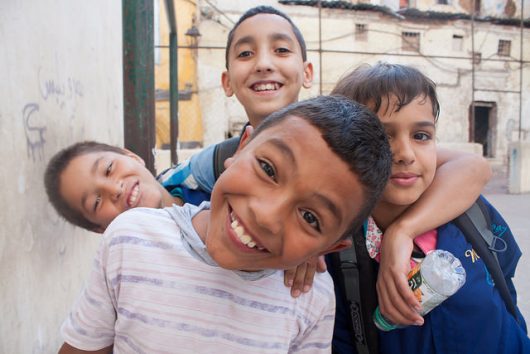Addressing Four Main Causes of Poverty in Algeria
 With a population of approximately 40 million, Algeria is geographically North Africa’s largest country. It is also the world’s fourth largest gas exporter and the tenth largest exporter of oil. Algeria is a rich nation and the third most important economy in the Middle East and North Africa, but its people are poor. Reports show that the national rate of poverty in Algeria is as high as 23 percent.
With a population of approximately 40 million, Algeria is geographically North Africa’s largest country. It is also the world’s fourth largest gas exporter and the tenth largest exporter of oil. Algeria is a rich nation and the third most important economy in the Middle East and North Africa, but its people are poor. Reports show that the national rate of poverty in Algeria is as high as 23 percent.
What are the causes of poverty in Algeria? Why are up to half of young men from a country tempted to flee to Europe as illegal immigrants to escape misery at home?
Poverty and Unemployment
A high rate of unemployment among youth is one the causes of poverty in Algeria. Although the official figure is 12.48 percent, in reality it is much greater than that. One report from 2008 shows that unemployment among people under 30 was 70 percent. Such high unemployment rates and difficult quality of life have forced the country’s youth to take on desperate measures, such as illegal immigration to find work in Europe.
Political Conflict
Many Algerians blame the unresponsive and ineffective political leadership for the fall of the country’s economic position. One analyst claims that the “doctrinaire socialism” of the National Liberation Front (FLN), a political party which led the struggle for independence against France, rendered the country bankrupt. The Algerian Civil War between the Algerian government and various Islamic rebel groups from 1991 to 2002 and post-war political tensions further weakened the country’s political and economic stability.
Lack of Democracy
Lack of democratic institutions is another cause of poverty in Algeria. The struggle for power between the progressive FLN and conservative Islamic Front prompted military intervention on a number of occasions. The country’s current 80-year old President Abdelaziz Bouteflika has been in office since 1999 by “winning” four successive elections. Although he is respected as an elderly statesman for taking the country out of the civil war and eliminating radical and militant jihadi groups, the government under his rule has grown increasingly intolerant of press and political opposition.
Cuts in Government Spending
Another cause of people’s discontent and poverty in Algeria is the recent decline in oil price. Because Algeria relies heavily on oil and hydrocarbons for a strong economy, the sharp decline in oil price has prompted the government to implement spending cuts and tax hikes. Such measures without “improved safety nets, a cash transfer system reaching the needy, a solid media campaign to ensure better public understanding during its implementation and a stronger statistical system that allows monitoring of households’ living conditions more frequently” will pose a risk for Algeria.
Nevertheless, the pleasant news is that poverty in Algeria has decreased by 20 percent in the past two decades. While this number is promising, it is still not enough development. There is a need for a shift toward a more diversified economy that will move the country to sustainable growth and more employment opportunities.
– Aslam Kakar
Photo: Flickr
